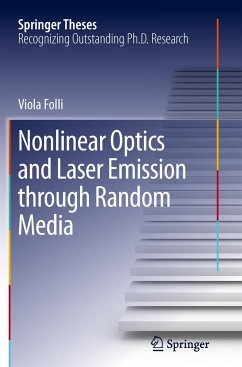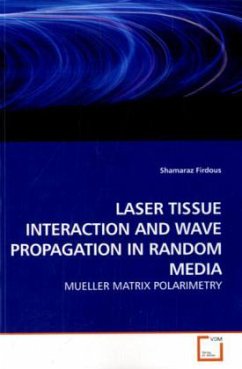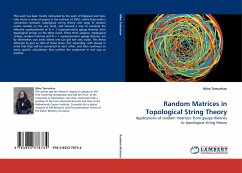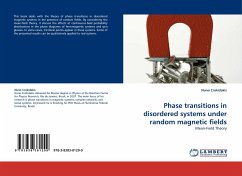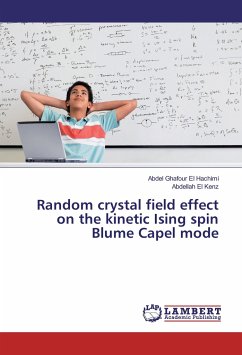
Amplified Spontaneous Emission of Random Gain Laser Media
Overview and Enhancement
Versandkostenfrei!
Versandfertig in 6-10 Tagen
32,99 €
inkl. MwSt.

PAYBACK Punkte
16 °P sammeln!
The random laser is a non-conventional laser whose feedback mechanism is based on random scattering, as opposed to the reflective feedback by the mirrors of a conventional laser. This alternative feedback mechanism has important application to lasers in the spectral regime where an efficient reflective element is not available, e.g., UV laser, x-ray laser. Materials or "gain media" that generate conventional lasers are put in an ordered structure known as "lossless resonators" - often mirrors - that generate light without losing much of it. Random laser materials, in contrast, are disordered a...
The random laser is a non-conventional laser whose feedback mechanism is based on random scattering, as opposed to the reflective feedback by the mirrors of a conventional laser. This alternative feedback mechanism has important application to lasers in the spectral regime where an efficient reflective element is not available, e.g., UV laser, x-ray laser. Materials or "gain media" that generate conventional lasers are put in an ordered structure known as "lossless resonators" - often mirrors - that generate light without losing much of it. Random laser materials, in contrast, are disordered and lose some light. Or as Vardeny puts it: "You can get lasing out of junky materials if they contain molecules that glow. Out of disorder comes perfect order." Random lasers using R6G dyes gain medium together with TiO2 nanoparticles has proven to be a reliable method in producing such optimum and exceptional lasing.



